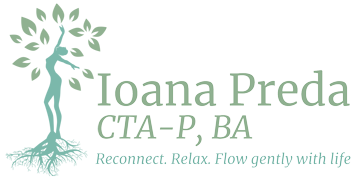
Why do we seek psychotherapy and what we might find? Some thoughts on change.
One of the most painful things in therapy is that it brings things to light.
One of the most rewarding things in therapy is that it brings things to life.
Eight years ago, when I began my practice I believed that people sought therapeutic support when they wanted a change. After years of listening to my client’s stories, I think that we seek therapy when change has already begun.
We are wired to seek physical and emotional comfort, connection and security: not only as children but also as adults. Most of us will react to changes that threaten our stability by feeling vulnerable, anxious, depressed, and yet interested to explore why.
Both planned and random events can turn our world upside down. Getting a job or losing one, leaving or entering a relationship, moving house, child birth, going to university, starting or closing down a business, as well as natural disasters, all play an emotional toll. And there are processes of emotional growth and conflict, which happen away from sight, which also impact on us. Certain events and relationships can amplify growth and conflict. More often than not, when the event or relationship has been unpleasant their effects are delayed, from a few days to many years. That’s why we sometimes feel like we’re not being our ‘usual self’ but can’t seem to link the change in how we feel to anything in particular. Although our external life circumstances may not appear to have changed, we find ourselves getting more anxious, confused or we obsess until our thoughts and feelings go off in a spin and a panic attack may ensue. Sometimes stress impacts our sleep and/or focus, and our digestion may get disturbed. We may feel like crying without knowing why, or feel numb or tune out when those around us are behaving emotionally. In social gatherings we may feel uncomfortable, apart from and inadequate. In our relationships we may sway between being bored to confrontational, may become depressed, demotivated and so on. All of these feelings are natural and most of us will have experienced them some of the time.
Could these feelings mean there’s something wrong with us? In my opinion as a psychotherapist, no. Our humanity involves being lacking, imperfect and ever becoming, and feelings are our windows through life. Having unpleasant feelings doesn’t mean that there’s something wrong with us; it might mean that some things are wrong for us. My therapeutic approach aims to lift the pressure off blame and shame. We can identify what and why is not working for us and work further to harmonise the parts that are.
Most of us have adapted to putting duty before feelings, to “get on with it”, “do the right thing” and “move on”. We’ve become used to showing parts of ourselves. Sometimes we know we’re supressing an emotion. We get angry with someone but don’t speak about it to them, we get upset but tell ourselves that now it’s not the time or place to cry. If we can’t express what we’re feeling in that moment, we need to find a space to land and feel what we need to. This helps our mental health and general wellbeing. Some of us do this in solitude, with friends, partners, family, our pets, or we let off steam through social networks. Some of us prefer to speak to a therapist or counsellor because we feel that confidentiality and talking to a professional will increase our understanding.
At other times we may be unaware. Perhaps we got used to caring for others’ feelings but not our own. It may be that painful events and feelings got buried so far below the surface, we don’t know they exist. Nevertheless, they are still there and we spend huge amounts of energy to “keep the lid on this”. In the long run it is exhausting, toxic and damaging, leading to depression, anxiety, addictions, to name a few. It often comes as a breakthrough when we grasp the paradox of how we can get mentally and physically ill while trying to avoid feeling unwell. But this is how our mind works, and until it’s safe to know more about those dark places, “not seeing” is our best option. In order to see, we need someone who’s willing to look. In therapy we are witnessed, and that’s one of most frightening as well as one of the most healing things about it.
In addition, the environment interacts with our biology in ways that facilitate emotional growth, and the pain that we may experience comes from getting in touch with new, emerging aspects of our selves. We never find things that are not within us already: hidden, disguised or latent. Whenever we come across situations that relate to familiar, painful ones, or we interact with someone who mirrors what we also need to see in ourselves, painful feelings can, and will, be triggered and brought to the surface. This is when the healing begins.
Recently I was asked by a psychology magazine to write a few thoughts on how can someone attract change into their life. That implies that we’re somehow static and we need to do something in order to change. I approach people with the belief that we ARE in change, that change IS, and it is a matter of attuning ourselves into it, through our emerging feelings. Feelings are never static so we try to make them so. That’s when we get stuck. On an idea, on a job, in a relationship, with an ideal that’s not relevant anymore. Change is safer when we plan it and more rewarding when we don’t. I think we need both for a balanced and full life, and in therapy they come hand in hand.

Write a Comment